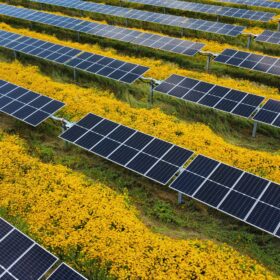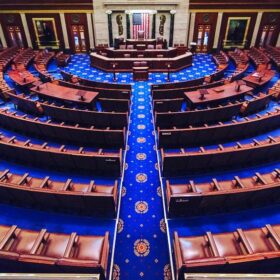San Diego-based Indian Energy LLC received a grant worth more than $5 million from the California Energy Commission (CEC) to develop and demonstrate long-duration, non-lithium-ion-based energy storage technologies.
The grant is part of the CEC’s Electric Program Investment Charge (EPIC) program and aims to demonstrate the value of energy storage technologies, evaluate how they meet varying customer needs, and help increase grid resiliency.
With the funds, Indian Energy, along with construction management partner Webcor, will develop, integrate, and commission several innovative Hybrid Modular Storage Systems (HMSS) as a long-duration energy storage technology demonstration and deployment research project.
Webcor’s part of the contract award totals more than $1.9 million, including $1.5 million in match funding. Also receiving project budget line items are Eos Energy Storage ($983,000), Avalon Energy ($624,000), and the Electric Power Research Institute (nearly $400,000).
In its grant application, Indian Energy said that large-scale energy storage is a critical success factor in the widespread de-carbonization of the nation’s electric power generation and delivery capability. To date, however, “single technology solutions do not offer the required capacity, are expensive, have short duty lives, and much of their approach is harmful to the environment when decommissioning occurs,” the company added.
The HMSS project involves developing six module types, each capable of meeting the requirements of long-duration energy storage and the needs of the state grid operators.
Located in the 52 Area of Camp Pendleton to leverage existing clean energy assets, the HMSS will demonstrate how to optimize the productivity of a variety of solar assets by charging with clean energy and shifting the delivery of that energy to peak demand and evening hours. It will also demonstrate how to shift to 100% renewables, as well as provide deep resiliency toward grid disturbances such as wildfires and cyber attacks.
Testing tech
Three specific HMSS modules will be made of flow batteries, supercapacitors, fast-responding mechanical energy storage and zinc hybrid cathodes in integrated installations. The other three modules will be funded by other government agencies and private industry partners. Developed using a “system of systems approach,” the energy storage technologies will also include an innovative hybrid controller which will ensure that each technology will be used at its most advantageous operating point, or optimized.
The project includes installing different types and configurations of batteries, testing them, and then using them as one large unit, to test how such a unit would be used on the California power grid. The best HMSS then will be scaled to achieve 400 kW for 10 hours, the requirement stated in the grant.
The project is preceded by nearly a decade of renewable and resiliency activities in the Navy Southwest Region and adds to Indian Energy’s recent award of more than $6 million in funding by the CEC to create two laboratories to test advanced energy storage technologies. The energy storage grants are being developed in partnership with the United States Marine Corps and the Viejas Band of Kumeyaay Indians.
Indian Energy is a 100% Native American-owned utility-scale and microgrid development and systems integration firm. It specializes in developing large-scale advanced energy resiliency solutions for the Department of Defense, Community Choice Aggregators and Tribal Utility Authorities.
This content is protected by copyright and may not be reused. If you want to cooperate with us and would like to reuse some of our content, please contact: editors@pv-magazine.com.









By submitting this form you agree to pv magazine using your data for the purposes of publishing your comment.
Your personal data will only be disclosed or otherwise transmitted to third parties for the purposes of spam filtering or if this is necessary for technical maintenance of the website. Any other transfer to third parties will not take place unless this is justified on the basis of applicable data protection regulations or if pv magazine is legally obliged to do so.
You may revoke this consent at any time with effect for the future, in which case your personal data will be deleted immediately. Otherwise, your data will be deleted if pv magazine has processed your request or the purpose of data storage is fulfilled.
Further information on data privacy can be found in our Data Protection Policy.